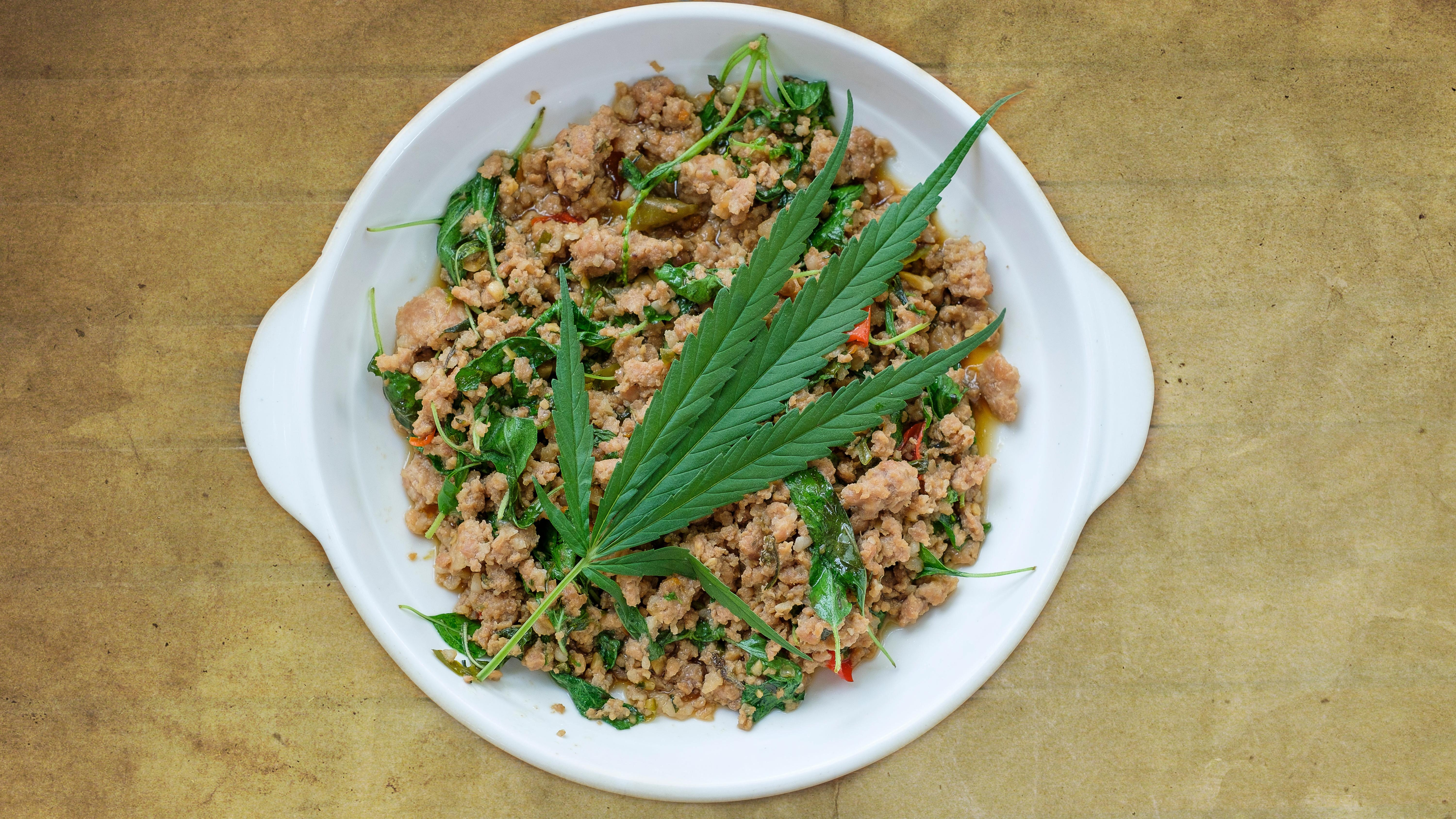Why Thailand Cooks With Cannabis (It's Not To Get High)
The cannabis plant has culinary uses beyond infusing food with THC.
Whenever people cook with weed, I presume it's mainly to achieve one very particular effect. In my experience, weed has such a strong pine-like and hoppy flavor that its uses as a seasoning are fairly limited; I've never seen the appeal of cooking with it. But I've only tried using the flower in my cooking—and it turns out that the other parts of the cannabis plant have handy culinary uses all their own.
In Thailand, where weed was recently decriminalized this past June, traditional recipes including cannabis leaves and roots are coming back into favor, and Whetstone Magazine has a fascinating piece about how cannabis is returning to Thai cooking. The portions of the plant that are used for culinary purposes are not the buds, but actually the leaves and the roots.
Why cook with cannabis leaves?
But what makes those parts of the plant worth eating? Interestingly enough, the leaves and roots contain glutamic acid, a compound that adds an MSG-like umami flavor to any dish. So savory meals containing cannabis leaves gain a natural flavor boost.
The leaves were once used primarily in dishes like curries and stir fries as a seasoning agent—"as common as garlic or basil," Whetsone notes—but of course, since weed's been newly decriminalized, it's in plenty of dishes beyond curries and other traditional dishes. Thai pizza chain The Pizza Company (sort of like the Pizza Hut of Thailand) once offered a pizza with a cannabis leaf on it, though as NPR reports, it wouldn't have gotten you high.
While there's still THC (the compound that gets you high) present in the leaves and roots of the plant, cannabis enthusiast site Canna Connection says that you'd have to ingest a lot of leaves to get intoxicated. If you're in Thailand, bud is readily available, so getting high by eating a shitload of weed leaves seems like an inefficient way to do it anyway.
Other restaurants have been experimenting with weed in items like teas, pastas, desserts, and traditional dishes. So if you go traveling to Thailand anytime soon, don't be surprised if you see some in your noodles.
